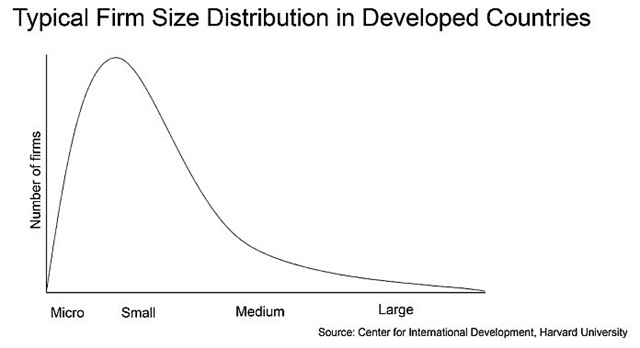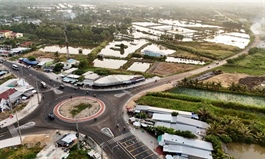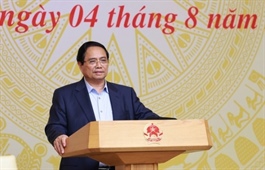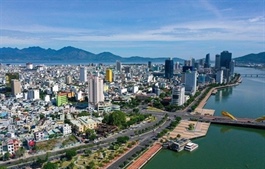Unlocking private sector potential
Unlocking private sector potential
Vietnam has a vision to position the private sector as a central engine of inclusive national development. Ramla Khalidi, Resident Representative in Vietnam of the United Nations Development Programme, and Bui Anh Tuan, director-general of the Agency for Private Enterprise and Collective Economy Development under Vietnam’s Ministry of Finance, write about how to unlock the private sector for shared prosperity.
Vietnam has taken a bold step with Resolution No.68-NQ-TW, a landmark policy that places the private sector at the heart of national development. This builds on other transformative decisions – those on international integration, legal reform, and also science, technology, and innovation – by offering a forward-looking roadmap for a dynamic new era.

(L-R) Ramla Khalidi, Resident Representative in Vietnam of the United Nations Development Programme, and Bui Anh Tuan, director-general of the Agency for Private Enterprise and Collective Economy Development under Vietnam’s Ministry of Finance |
For the first time, Vietnam officially recognises the private sector not just as a sector to support, but as a critical driver of economic growth – one that must be both promoted and protected. This marks a turning point in the country’s journey towards becoming a wealthy, inclusive, and sustainable nation by mid-century.
The National Assembly underscored this commitment with Resolution No.198/2025/QH15, passed in May, which introduces special mechanisms and policies to support private businesses.
At the United Nations Development Programme (UNDP), we are proud to support this strategic direction. We believe that empowering small- and medium-sized enterprises (SMEs) is essential for Vietnam’s success.
Already, three months into implementation, the Agency for Private Enterprise and Collective Economy Development (APED) – the architect behind resolutions 68 and 198 – is seeing positive early results. We are confident these new policies will remove bottlenecks, boost competitiveness, and position the private sector as a pillar of the national economy in the new era.
A smarter approach
With 98 per cent of enterprises falling under the SME category, many continue to face barriers to finance, land, skilled labor, and essential services – especially those that have moved beyond the startup phase but are still too small to attract major investment.
Current policies often treat all SMEs the same. For example, a rural micro-business with five employees and less than VND1 billion ($40,000) in annual revenue, and a much larger company with 200 employees and VND300 billion ($12 million) in annual revenue would qualify for similar support, despite vastly different needs.
Recognising this mismatch, the APED – with the guidance of the Party leadership, the government, and the Ministry of Finance – designed Resolution 68 using a tailored approach. It targets support for different categories of enterprises and caters to their specific capacities and needs.
Micro and small enterprises, business households, and individual entrepreneurs are to receive free digital platforms, accounting software, legal services, and skill-building training programmes.
Medium and large enterprises, on the other hand, will receive access to participate in major national projects, helping them expand to international markets through the ‘Go Global’ programme, and recognition under the ‘1,000 Outstanding Enterprises’ initiative.
International experience shows that countries move from micro-dominated to medium-enterprise-led economies as they grow richer (see graph).
For Vietnam to become a high-middle-income country, and eventually a high-income country, targeted support to small enterprises is essential to drive broad economic transformation.
Expanding financial opportunities
One of the top concerns voiced by private businesses in Vietnam is limited access to affordable finance – especially for startups, SMEs, and green projects. This has to do with both the lending and investment environment, and the absorption capabilities of private businesses.
Resolution 68 tackles this directly. It proposes enhancing the credit guarantee mechanism and revisiting the role of the SME Development Fund (SMEDF). Specifically, the resolution confirms that when evaluating loan eligibility, decisions no longer need to be based solely on collateral.
They can now also incorporate business production references, market-based planning, data-driven assessments, cash flow, and participation in value chains, as well as current and future assets. This helps level the playing field, enabling smaller enterprises greater opportunities to access finance.
Another promising direction is Resolution 68’s directions on blended finance, combining public funds with private and international investment. This approach reduces risk for investors while scaling up social and environmental impact business initiatives.
Globally, blended finance has helped mobilise significant private capital flows for sustainable businesses. Vietnam can draw lessons from successful ASEAN models, such as Singapore’s Financing Asia’s Transition Partnership and Indonesia’s SDG One Fund.
Additionally, Vietnam should consider expanding access to public loans, building a strong community of local angel investors, and offering incentives for large corporations to channel their corporate social responsibility funds into promising SMEs.
Resolutions 68 and 198 also broaden the role of SMEDF, allowing for startup loans, seed capital, or co-financing models that combine public and international/private resources. It will experiment with an indirect investment through a fund-of-funds mechanism by investing in private funds to broaden SME access to capital.
A more inclusive green economy
Resolution 68 positions private enterprises at the centre of Vietnam’s transition towards a green, circular, and sustainable economy, in full alignment with the country’s national development goals and international commitments. This builds on the momentum of the programme on supporting sustainable business practices for private enterprises 2022-2025.
Across Vietnam, many businesses are already embracing circular economy principles, inclusive business models, and social impact businesses that align with sustainable development objectives.
Encouraging enterprises to invest in social impact, adopt emission-limiting technologies, and use resources efficiently will create economic, social, and environmental value, and help enterprises integrate into global supply chains.
An excellent example is the Canada-funded ISEE-COVID project, jointly implemented by the APED and the UNDP. It has fostered business models that combine economic growth with environmental sustainability, and social inclusion.
These social impact businesses not only create decent jobs for women, persons with disabilities, and ethnic minorities, but also pioneer new business approaches to tackle climate change. Many blend international best practices with local wisdom to revitalise traditional industries and products.
Leveraging private innovation
Resolutions 68 is complementary with Resolution No.57-NQ-TW, together offering a powerful framework to drive innovation and sustainable development. While Resolution 68 emphasises the private sector’s leading role in economic growth, Resolution 57 positions Vietnam’s enterprises at the heart of innovation.
Resolution 57 introduces incentives to support enterprise investment in research, development, and technological innovation. Tax incentives, mechanisms to attract venture capital, and a more risk-tolerant approach to scientific and technological research are among the policies intended to empower businesses to enhance their technological capabilities and strengthen competitiveness in international markets.
Resolution 57 also links innovation to human development. It aims to maintain Vietnam’s Human Development Index (HDI) above 0.7. In 2023, Vietnam achieved an HDI of 0.766, which is deemed a positive milestone.
However, when adjusted for inequality in access to education, healthcare, and income, the index drops to 0.641, underscoring the urgent need to bridge development gaps and ensure equitable growth.
The UNDP believes that private sector-led innovation can support to improve HDI outcomes. Advances in education, healthcare, and social protection – led and supported by businesses – can lay the foundation for more equitable and inclusive development.
The UNDP fully supports the strategic direction outlined in Resolution 68. We remain committed to partnering with Vietnam’s private sector to strengthen capacity, promote inclusive and sustainable business models, and expand access to innovative finance.
The private sector holds the key to unlocking Vietnam’s sustainable development future. Now is the time to turn policy into practice – by scaling up innovation and leveraging creative financing as a catalyst for shared prosperity, for the benefit of all Vietnamese people.
|
- 17:00 05/08/2025























